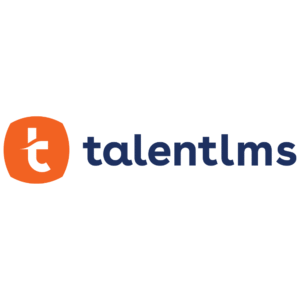While Stocks Last: Supply Chain Training Made Easy!
Efficient supply chain management is crucial for market success. Just ask Tim Cook, who was handpicked by Steve Jobs to fix Apple's broken supply chain [1]—and helped make it the largest company on the planet by market value in the process.
It can also be a very challenging problem, but it's neither impossibly hard, nor something that experience, knowledge, and the right mindset can't handle.
In this article, we will discuss the many challenges of supply management, and how supply chain training can help your managers and operations people tackle them.
The Challenges Of Supply Chain Management
1. Globalization
Supply chain's used to be much more regional. If you were a car manufacturer, for example, you'd get your steel from Pittsburgh and assemble your cars in Michigan. At worst, you'd need to import rubber from Brazil.
Today, that's no longer the case—automobile production can involve dozens of countries and hundreds of parts vendors and facilities. Even something as humble as a pencil might involve quite challenging logistics [2].
Understanding these global trade lines, and the ways that they apply to your company's products and roadmap is an important skill. It allows you to optimize a supply chain, to take advantage of emerging opportunities, and to know how and when to expand to a new market.
That's why any corporate executive or supply chain manager can benefit from a supply chain training program that teaches them the subtleties of global trade, and the necessary techniques for operating in an interconnected world.
Online learning is particularly apt for this task as it allows learners to study at their own pace, and from wherever they happen to be, 2 features that fit very well with the demanding schedules and the "road warrior" work habits of executives dealing with global supply chains.
2. Compliance
If navigating today's global markets is challenging, understanding and following the various regional, national, and international compliance requirements can be a real head-scratcher. Even if your company makes and sells something as simple as cupcakes, there are dozens, or even hundreds, sets of rules and regulations that your operations must comply with.
This includes safety laws, environmental protection laws, inclusivity and accessibility rules and guidelines, plus loads more standards and quality specifications that your product should be compliant with.
Your employees, from industrial designers and engineers to people managing your storage, shipping, and logistics, need to be aware of the relevant rules and regulations. Not just locally, but across its whole supply chain.
This also means that your suppliers also need to be able to provide parts and services that are compliant with all applicable rules for the markets that you operate in. eLearning is the only training paradigm that can help you spread such knowledge across your regional offices and supply partners in a timely and cost-effective manner.
Online supply chain training not only helps eliminate the enormous costs and complicated logistics needed to deliver such training in a global scale but lets you do so in a form that's readily updatable anytime rules and regulations change (and they do change, a lot).
3. Hiring The Right Suppliers
While managing your supply chain well is very important, picking the right supply chain partners and the right suppliers, to begin with, is an equally crucial skill.
It's also something of an art in itself. You need to be able to gauge market opportunities all across the globe. Moreover, you need to be able to judge people as potential supply partners and predict their ability to deliver.
And that's just half of it.
You also need to train your suppliers. This way, you’ll ensure that the final delivery is made with the right specifications, follows the necessary standards, and passes the quality controls that your business demands.
Try explaining in what ways the parts delivered aren't to your exact specs to the factory manager in Shenzhen or sort out your transport and delivery requirements with a business rep that barely speaks your language, but whose company has the best prices. Hard, right?
Web and mobile-based eLearning programs can be designed and deployed in a matter of days or weeks, each targeting a particular supplier or set of suppliers.
Among other factors, eLearning training programs are cheaper to run, easier to revise, and can be deployed instantly across the globe, in one, or more languages.
LMS Features For Supply Chain Training
Supply chain training is not very different from other forms of corporate training to require specialized eLearning tools. A good all-around corporate training LMS should be able to handle such a task and cover your other corporate training needs.
That said, there are some features that your LMS should have if it is to be used for supply chain training. Let's go through them and examine how an LMS, like TalentLMS, handles them:
1. The ability to quickly write, adapt and revise training content
TalentLMS enables this thanks to its built-in WYSIWYG editor, its support for the automatic importing and conversion of all major document and media types, and its advanced content sharing and re-use options.
2. The ability to deliver and manage specialized training courses for different suppliers
In TalentLMS, this is offered through its Branches feature, which allows you to manage independent but centrally created portals, each with its own branding, settings, language, and users.
3. Certificate handling to help ensure compliance and track compliance training progress
TalentLMS has built-in support for Certifications and even allows you to customize them, create your own templates, and give them auto-expiration dates.
4. A scalable, secure and low maintenance delivery mechanism
These features are par for the course for a SaaS LMS, like TalentLMS. It has been built to support hundreds of thousands of learners across thousands of businesses (and does so every day).
It also doesn't require any installation or maintenance from the user's side. As a cloud service, it's kept up-to-date, secure, and smoothly running by the vendor.
Conclusion
In this article, we had a look at some of the biggest challenges associated with supply chain management, and how an effective supply chain training program can play a crucial role in understanding and overcoming them.
If you are interested in deploying a supply chain training program in your company, sign up for a forever-free account today and let TalentLMS supply its training prowess and help you take your supply chain management to the next level!
References:









